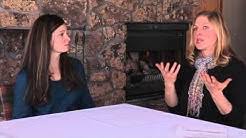How to Interview Event Planners
Planning for Your Interview
As you plan ahead for an event planner job interview, review the events you’ve already planned, thinking of examples of times you’ve had to think on your feet to solve an unexpected problem, deal with difficult clients, or work with a restrictive budget. As well, think about times when an event you’ve organized has gone flawlessly.
These examples will all be helpful when answering interview questions and will give your interviewers stories to remember you by. Prepare for your interview by reviewing this list of frequently asked questions for event planners, and practice how you’d answer each question.

Here’s the thing about event coordinator interview questions…
Events administrator interview questions revolve around three main categories: your personality, your job related experience, and your overall event planning strategies or philosophies.
And don’t worry if you’re just starting out – most interviewers will take that into consideration. So if you come across a question about any situation you have yet to personally experience, just be honest and explain what you would do, if given the opportunity.
Most Common Event Planner Questions and Answers
Events administrator interview questions are a piece of cake once you’ve rehearsed your responses. Here are some standard questions along with suggested answers and advice to keep in your back pocket when preparing for the interview:
1. What personality traits, skills, and education do you think all event planners must have?
Answer: The most successful event planners tend to be highly flexible, organized, and easy to get along with. They also have great time, money, and people management skills. And although formal education isn’t necessarily required it’s always good to have a college degree and/or a certification or two under your belt when starting out.
2. Why do you want to plan events for our company?
Answer: Be thoughtful in your answer to this question. Besides a love of events, you’ll probably want to go over the company’s mission or value statement and find the points you resonate with the most.
3. What event software and tools do you like using? And why do you use them?
Answer: If you don’t already have some programs you actively work with, make sure you review a free planning event software or tools ahead of time and mention that you’d like to use them for upcoming projects.
4. How do you keep up with industry trends and news?
Answer: Event planning blogs (like this one) are a great resource for keeping up to date with it all. If you don’t already have some ready to go for this question, start by bookmarking the Social Tables blog for future reference.
5. How do you manage event promotion, including social media outreach and email campaigns?
Answer: Just in case it’s been awhile, here’s a great guide to promoting events on social media you can use to brush up.

Work Hours
Because many social events occur outside of normal business hours, event planners are often expected to work during off-hours. You will likely be expected to work weekends and evenings. Additionally, events may be located in a variety of different locations, requiring you to travel substantial distances. As such, potential employers will want to ask you if you are anticipating these requirements. Below are a couple sample event planner question and answer that can help you address this issue.
- Are you available to work long hours?
“Because most events are on weekends and evenings, I anticipate that I will need to be available to work during odd hours. I also understand that some events can require extensive time to set up, run and clean up. While this can be demanding, I am passionate about the job and willing to be available.”
- Are you able to travel long distances?
“ I understand that many events may require travel, and I am willing to spend the time getting to a location because I want to make sure that clients are getting the event they want where they want it.”
Event planning can be substantially more difficult than you may think, and it is important that you portray your ability to meet the job’s demands. Ultimately, it is important to clearly show your strong organizational skills and overall flexibility.

What to Wear for a Special Events Coordinator Job Interview
Special events coordinators can wear conservative interview attire and still be considered qualified candidates for the job, but consider the industry you’re in before you settle on just a typical suit and tie or a skirt with a matching shell and cardigan. Regardless of whether your industry permits out-of-the-box ideas and appearances, don’t go overboard. Importantly, ensure your interview attire fits properly and that you feel comfortable and confident in whatever you choose to wear.
Traditional Interview Attire
Many career coaches strongly recommend that job candidates “dress for success,” which usually translates into “wear a suit,” for any interview. Advice such as “dress for the job you want, not the job you have,” suggests that traditional interview attire is a suit in a dark, neutral or muted tone. That said, traditional for men means a two-piece suit, white shirt, tie and wingtip shoes. For women, they can choose between a pantsuit or skirt suit, a blouse that’s not too frilly or low-cut, neutral hosiery and mid-heel pumps.
What Is a Special Events Coordinator?
Jobs for special events coordinators exist in practically any industry. They can work in the health care industry, professional services and consulting, retail and the fashion and beauty industry. The title is self-explanatory — they coordinate special events. A special events coordinator for a hospital might plan fundraisers or groundbreaking events for building a new wing. Those who work for certain retailers and companies in the fashion and beauty industry might plan fashion shows or welcome parties for designers, spokespersons or celebrities. What you wear to your interview to become a special events coordinator can depend on the industry.
Accessories
No matter what industry you’re in, keep your accessories to a minimum. That means leave the dangling, bling-bling earrings in your jewelry box, remove piercings and cover tattoos that might express controversial or inappropriate messages. You want the interviewer to focus on you and your skills, not wonder whether those earrings are so heavy that your ears hurt. Also, bring extra copies of your resume in a slim portfolio, as well as a notepad and pen. Don’t fumble around with a purse or coat — they can stay in the car. This way, you’ll look like you’re ready for business, instead of clumsily finding a place to lay your coat or handbag.
Event Coordinator Job Description :
We are searching for a talented and motivated Event Coordinator to organize outstanding and unforgettable events. You will be responsible for every part of event preparations, such as choosing venues, approving menus, developing seating plans, and evaluating success afterward.
As the Event Coordinator, you should be well-organized and possess a sound knowledge of vendor management. Excellent communication and attention to detail skills are vital in this role, as our success depends on meeting our client’s tailored requirements.
Responsibilities:
- Identify the client’s requirements and expectations for each event.
- Liaise with vendors, exhibitors, and stakeholders during the event planning process to ensure everything is in order.
- Manage all event set-up, tear down and follow-up processes.
- Maintain event budgets.
- Book venues, entertainers, photographers, and schedule speakers.
- Conduct final inspections on the day of the event to ensure everything adheres to the client’s standards.
- Assess an event’s overall success and submit findings.